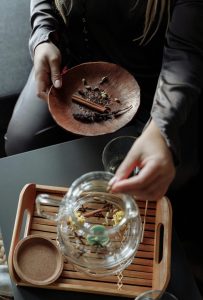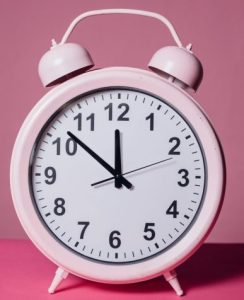Menopause is a natural stage of life—but that doesn’t make it easy. Hot flashes, mood swings, brain fog, fatigue, and sleep disturbances can leave you feeling out of balance and overwhelmed. While hormone replacement therapy (HRT) works for some, many women are looking for safer, gentler options.
That’s where herbal remedies for menopause come in.
From ancient traditions to modern clinical studies, herbs like black cohosh, red clover, and ashwagandha have been used to ease symptoms naturally. In this guide, you’ll discover 27 evidence-backed herbs that may help support your body through this transition—along with safety tips, usage advice, and how to get started the smart way.
Whether you’re navigating perimenopause, menopause, or postmenopause, you’ll find natural solutions that meet your needs.
Understanding Menopause and Its Symptoms

Menopause marks the natural end of a woman’s reproductive years, typically occurring between ages 45 and 55. The transition is driven by a gradual decline in two key hormones—estrogen and progesterone—which regulate everything from the menstrual cycle to brain function and bone density.
As these hormones decrease, women may experience a range of symptoms, including:
Hot flashes and night sweats
Mood swings and irritability
Brain fog and difficulty concentrating
Vaginal dryness
Fatigue and disrupted sleep
These symptoms vary in intensity and duration depending on whether you’re in perimenopause (the transition phase), menopause (when periods have stopped for 12+ months), or postmenopause (the years following).
While hormone replacement therapy (HRT) can be effective, many women seek non-hormonal menopause treatments—especially those with medical contraindications, past cancer history, or a personal preference for natural solutions. This shift has sparked renewed interest in herbal remedies for menopause as supportive, plant-based alternatives to manage symptoms.
What Are Herbal Remedies for Menopause?

Herbal remedies for menopause are plant-based treatments traditionally used to relieve the symptoms associated with hormonal changes during midlife. These remedies include teas, capsules, tinctures, and topical applications made from herbs with phytoestrogenic, adaptogenic, or anti-inflammatory properties.
Unlike hormone therapy, herbal remedies don’t replace hormones directly. Instead, they help the body rebalance by:
Phytoestrogens (like red clover and soy isoflavones) mimicking weak estrogenic activity
Adaptogens (like ashwagandha and maca) supporting stress resilience and hormonal equilibrium
Anti-inflammatory herbs (like turmeric and evening primrose oil) reducing discomfort from aches, bloating, and skin issues
These herbs interact with the body’s endocrine system, influencing how hormones are processed, balanced, or modulated. While they’re not a one-size-fits-all solution, many women report noticeable relief when using the right herbal blend tailored to their symptoms.
As you’ll see in the next section, many of these remedies also have emerging scientific support.
Do Herbal Remedies for Menopause Really Work?
The effectiveness of herbal remedies for menopause has been the subject of growing scientific interest. While results vary, several herbs have shown promise in peer-reviewed studies:
Black cohosh has been linked to reduced hot flash frequency in multiple trials
Red clover and soy isoflavones contain phytoestrogens that mimic estrogen’s effects on tissues
Valerian root, lavender, and passionflower have been studied for their calming, sleep-promoting benefits
Ashwagandha and maca root have demonstrated hormone-supportive and adaptogenic effects in small studies
That said, some studies are limited by small sample sizes or short durations. Results are often mixed, which is why personal tracking and professional guidance are important.
Many women report improvements within 2 to 6 weeks of consistent use, although full effects may take several months depending on the herb and symptom targeted.
For trusted insights, consult reputable sources like:
In the next section, we’ll break down the top herbal remedies by symptom, so you can explore which options may be the best fit for you.
Top Herbal Remedies Based on Menopausal Symptoms

Every woman’s experience of menopause is different. That’s why choosing the right herbal remedies for menopause means understanding which herbs align with your specific symptoms. Below is a breakdown of evidence-informed herbs categorized by the symptoms they most effectively address.
Hot Flashes & Night Sweats
Black Cohosh
Black cohosh is one of the most studied herbs for hot flashes. It may influence serotonin receptors and temperature regulation in the brain. Studies suggest it can reduce hot flash frequency and intensity in some women. However, long-term safety is still under review. Avoid if you have a liver condition.
Red Clover
Red clover contains isoflavones, natural compounds that mimic estrogen. These may help balance hormone levels and relieve hot flashes. Clinical results vary, but many women report mild to moderate improvements.
Sage Extract
Used for centuries to reduce excessive sweating, sage has become a go-to herb for managing night sweats and hot flashes. Available as tea, capsules, or tinctures, sage supports sweat regulation and thermoregulation.
Soy Isoflavones
Found in soybeans, tofu, and tempeh, soy isoflavones act as weak estrogens. Regular consumption through food or supplements may reduce vasomotor symptoms over time, particularly in early menopause.
Mood Swings, Anxiety & Brain Fog
Ashwagandha
This adaptogen supports the adrenal glands and helps regulate cortisol. It’s often used to reduce irritability, emotional swings, and anxiety related to menopause. Ashwagandha also supports cognitive clarity and resilience to stress.
St. John’s Wort
Traditionally used for depression, this herb may help stabilize mood swings. However, it can interact with many medications—especially antidepressants and birth control—so consult a healthcare provider before use.
Ginseng
Ginseng is known for increasing energy and enhancing cognitive function. In menopausal women, it may improve focus, memory, and emotional balance. Look for Panax ginseng in standardized extract form.
Rhodiola & Holy Basil
Both herbs are adaptogens that help the body cope with stress. Rhodiola supports mental alertness, while holy basil promotes calm and reduces anxiety levels—useful for managing emotional turbulence during menopause.
Sleep Disturbances
Valerian Root
This natural sedative shortens sleep latency (the time it takes to fall asleep) and improves sleep quality. Often used in combination with other calming herbs, it’s best taken 30 minutes before bedtime.
Chamomile
Gentle and soothing, chamomile tea or extract helps calm the mind and promote better sleep. Its mild sedative effects make it safe for regular, long-term use.
Lavender
Lavender oil can be used aromatically or in capsule form to reduce anxiety and improve sleep. Inhalation has been shown to lower heart rate and induce relaxation before bedtime.
Passionflower
This herb increases GABA levels in the brain, helping calm nervous activity and reduce insomnia. It’s especially helpful when sleep issues are tied to anxiety or racing thoughts.
Vaginal Dryness & Libido
Evening Primrose Oil
Rich in gamma-linolenic acid (GLA), evening primrose supports hormonal health and may help reduce vaginal dryness. It’s also linked to improved skin hydration.
Dong Quai
A cornerstone of traditional Chinese medicine, dong quai is used to support hormonal balance and vaginal tissue health. Avoid if you’re on blood thinners or have hormone-sensitive conditions.
Tribulus Terrestris
Known for its libido-enhancing potential, this herb may increase sexual desire and function in menopausal women. Research is limited but promising.
Chasteberry (Vitex)
Vitex influences pituitary gland activity and can help balance estrogen and progesterone. It’s especially helpful in perimenopause for easing PMS-like symptoms.
Weight Gain, Bloating, and Fatigue
Maca Root
Maca is an adaptogen that may help stabilize energy levels, support libido, and reduce belly fat linked to hormonal changes. Available in powder, capsules, or tinctures.
Flaxseed
A great source of plant-based omega-3s and phytoestrogens, flaxseed helps balance hormones and support healthy digestion. Ground flaxseed is the most bioavailable form.
Dandelion & Fennel
These herbs support liver function and act as mild diuretics, helping to relieve bloating and water retention. They’re commonly used in detox teas for menopause support.
Joint Pain, Skin Irritation, Itchy Skin
Turmeric
Curcumin, the active compound in turmeric, offers potent anti-inflammatory effects. It may help reduce joint pain and stiffness associated with estrogen decline.
Boswellia
Known as Indian frankincense, boswellia supports joint comfort and mobility. It’s especially helpful for menopausal women experiencing stiffness or pain.
Evening Primrose (again)
Beyond hormonal support, evening primrose helps reduce skin dryness and irritation, improving elasticity and hydration as estrogen drops.
How to Choose the Right Herbal Remedy

Choosing the best herbal remedies for menopause starts with identifying your primary symptoms. Are hot flashes your biggest issue—or is it mood swings, sleep disruption, or vaginal dryness? Once you’ve prioritized, look for herbs shown to support that need.
Next, consider the form that works for your lifestyle:
Teas for gentle, slow-acting relief
Capsules or tinctures for higher potency
Essential oils or creams for topical use
Always choose high-quality products with third-party testing, organic or wildcrafted ingredients, and full transparency in labeling. Avoid products with unnecessary fillers or proprietary blends that hide exact dosages.
Finally, take into account your personal health history. If you’re on medications or have hormone-sensitive conditions, check with a qualified practitioner before starting any herbal regimen. A little caution upfront ensures a safer, more effective path toward natural relief.
Safety, Side Effects, and Drug Interactions
While herbal remedies for menopause are often seen as “natural,” that doesn’t mean they’re risk-free. Like any bioactive substance, herbs can produce side effects and interact with medications.
Common Side Effects to Watch For:
Nausea or digestive upset (e.g., black cohosh)
Drowsiness (e.g., valerian, passionflower)
Skin irritation (e.g., topical essential oils)
Headaches or dizziness in some sensitive users
Drug Interactions to Be Aware Of:
St. John’s Wort may interfere with antidepressants, birth control, and blood thinners.
Dong Quai may thin the blood and shouldn’t be combined with anticoagulants.
Red clover and soy isoflavones may affect estrogen-positive breast cancer survivors—consult your oncologist before use.
Quality Control Tips:
Look for third-party testing (e.g., USP, NSF, ConsumerLab)
Avoid proprietary blends with undisclosed ingredient amounts
Choose organic or wildcrafted sources when possible
When to Stop:
Discontinue immediately and consult a healthcare professional if you experience allergic reactions, worsening symptoms, or any unusual physical or emotional effects.
When to Consult a Healthcare Professional
Herbal remedies for menopause are most effective—and safest—when integrated into a broader healthcare plan.
Know When to Get Medical Advice:
Symptoms are suddenly severe or rapidly worsening
You’re dealing with persistent bleeding, heart palpitations, or new mood disorders
Herbal supplements are not producing relief after 6–8 weeks
You have a personal or family history of hormone-sensitive cancers
Who to Talk To:
A naturopathic doctor (ND) trained in botanical medicine
An integrative or functional medicine MD
A certified clinical herbalist
How to Prepare for the Conversation:
Keep a symptom journal: log changes in mood, sleep, libido, and hot flashes
Bring your current supplement list
Note down your top goals (e.g., better sleep, mood regulation)
When healthcare providers are informed, they can help you fine-tune your natural approach—or recommend necessary conventional interventions if symptoms require it.
Lifestyle Strategies That Boost Herbal Effectiveness

Herbs work better when supported by healthy daily habits that promote hormone regulation, nervous system balance, and overall wellness.
Foods That Support Hormonal Balance:
Omega-3s from flaxseed, chia, and fatty fish
Cruciferous vegetables (broccoli, kale) to support estrogen detox
Complex carbs like oats and quinoa to stabilize blood sugar and mood
Physical Movement:
Strength training helps prevent bone loss
Yoga and walking improve circulation and mood
Regular exercise reduces cortisol and improves hot flash tolerance
Sleep Hygiene Tips:
Avoid caffeine and alcohol late in the day
Keep your room dark and cool
Try calming rituals like chamomile tea and lavender oil before bed
Mindfulness & Stress Reduction:
Box breathing or 4-7-8 breathwork
Guided meditations for menopause symptoms
Journaling or gratitude practice to support emotional processing
Together, these strategies enhance the power of herbal remedies for menopause, helping your body respond more consistently and effectively.
Frequently Asked Questions (FAQs)

1. What’s the most effective herbal remedy for menopause?
There isn’t one “best” herb that works for everyone, as symptom patterns and hormone levels vary widely. That said, some of the most effective herbal remedies for menopause include:
Black cohosh for hot flashes
Ashwagandha for stress and hormonal support
Red clover for phytoestrogenic activity
Maca root for libido and energy
Valerian or lavender for sleep
Choosing the right herb depends on your primary symptoms and overall health profile.
2. How long does it take for herbal remedies to start working?
Most women notice subtle improvements within 2 to 6 weeks of consistent use. Some herbs, like valerian or lavender, work quickly for symptoms like insomnia. Others, such as black cohosh or chasteberry, may take longer—up to 8–12 weeks—for full effect. Consistency, proper dosage, and lifestyle support (like diet and stress management) improve your chances of success.
3. Are herbal remedies as effective as HRT?
Herbal remedies and hormone replacement therapy (HRT) serve different roles. HRT tends to work faster and more aggressively by replacing estrogen and progesterone directly. In contrast, herbal remedies for menopause support your body’s natural hormone balance, often with fewer side effects. While not always as potent, herbs can be effective for mild to moderate symptoms, especially when used consistently and combined with lifestyle strategies.
4. Which herbs are best for brain fog or sleep?
For brain fog, consider ashwagandha, ginseng, and rhodiola—adaptogens that support clarity and reduce mental fatigue.
For sleep, valerian root, passionflower, lavender, and chamomile are among the most trusted natural sleep aids for menopause. These herbs work by calming the nervous system and reducing cortisol.
5. Can you take more than one herbal supplement at a time?
Yes—but with caution. Many herbal supplements for menopause are combined in commercial formulas to target multiple symptoms (e.g., hot flashes and mood swings). If you’re combining single herbs on your own, start with one at a time to track effects. Always watch for overlapping side effects or contraindications, especially if you take medication. Consulting a practitioner ensures safe combinations tailored to your needs.
6. Is it safe to use herbal supplements long term?
Many herbs—like maca, flaxseed, and chamomile—are safe for long-term use when taken in recommended doses. Others, like St. John’s Wort or black cohosh, may carry risks if used beyond a few months without monitoring. The key is to rotate or pause use periodically, monitor your body’s response, and stay in communication with a healthcare provider—especially if you’re managing a chronic condition or taking other medications.
Final Thoughts
Managing menopause doesn’t have to mean choosing between suffering and medication. With the right information and a personalized plan, you can explore natural remedies for menopause that align with your body and lifestyle.
Herbs can be powerful allies—but they’re most effective when used consistently and safely. Start slow, listen to your body, and consult a knowledgeable healthcare provider if you’re unsure where to begin.
Remember, every woman’s journey is different. The key is to find what works for you—and this guide is here to help you do just that.
Ready to feel more like yourself again? Download our free Menopause Herbal Symptom Tracker to start mapping your relief plan today.
- 7+ Proven Home Remedies for Sneezing That Actually Work - August 2, 2025
- 10 Natural Remedies for Eczema Relief - June 5, 2025
- How to Clean Pool Table Felt Without Damaging the Surface - May 9, 2025

